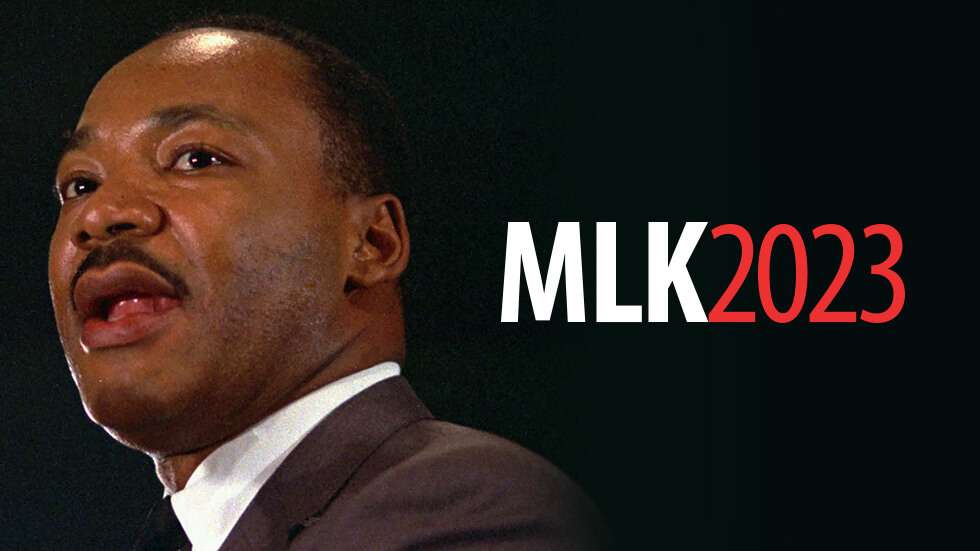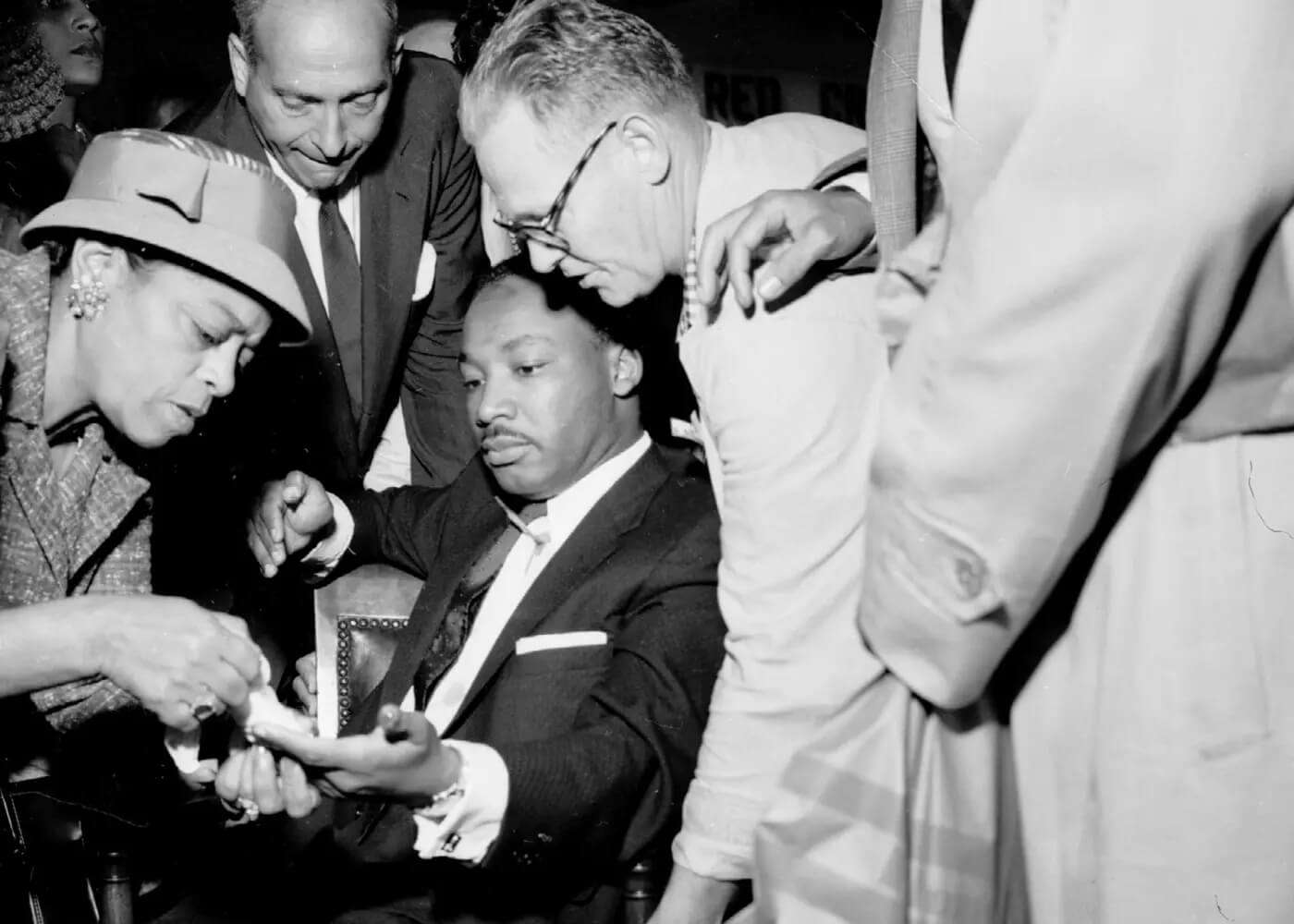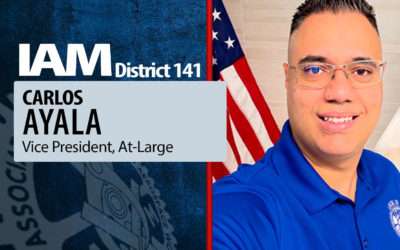
4 Things Most People Don’t Know About MLK
Today is the day Americans celebrate the life and legacy of Rev. Dr. Martin Luther King, Jr. There are many aspects of his life that everyone knows, such as his prominent role in the Civil Rights Movement of the ’60s, his work as a pastor and union organizer, and the near-constant harassment and conspiracy theories he had to endure. Yet, there are still many chapters of his biography that remain largely unknown. Here are five things most people still don’t know about the Human Rights icon.
Martin Luther King Jr.’s birth name was actually Michael King Jr.
Every year on the third Monday of January, America celebrates the life and legacy of Dr. Martin Luther King Jr., a champion of civil rights and a symbol of peace. However, very few people are aware that this historic leader was born under another name: Michael King Jr. Martin Luther only adopted his famous name after his father, a prominent Pastor in Atlanta, GA, changed both their names to Martin Luther in honor of Protestant reformist Martin Luther following an extended tour of Europe and Germany in 1934. While the exact reasons for the change remain a topic of debate, the elder King swiftly replaced “M.L.” or “Mike” King with “Martin Luther King, Sr.”
The younger King was more reticent about the name change. His original birth certificate was filed on January 15, 1929, when he was already five years old. He did not start referring to himself by “Martin,” in his letters until well into the 1950s, preferring instead to sign off with the initials “ML.” The first time he seems to have formally used the name Martin was in a July 18, 1952, letter to his then-girlfriend and future wife, Coretta. He ends the beautiful missive with “Eternally Yours, Martin.”
His name was formally changed when his birth certificate was updated with “Martin Luther” on July 23, 1957, when he was 28.

He was nearly assassinated a decade before his actual assassination
One of the stranger stories about King’s life happened on a cool September afternoon in the shoe section of a bustling Harlem department store when he was 29. King had become a national figure following the Atlanta bus Boycotts triggered by Rosa Parks’ refusal to sit at the back of a bus. King had written a book about the event called Stride Toward Freedom. While promoting the book, a 42-year-old black woman named Izola Ware Curry stepped forward and stabbed King in the center of his chest with a pen knife. She stabbed him with so much force that the blade broke off in his chest and remained there as the shocked crowd jumped to restrain her.
Photos from the attempt on his life are eery. In the most famous, King is shown calmly having a wound on his hand treated while the blade juts from his chest, a small circle of blood spreading under his otherwise clean white shirt. (Take another look at the photo above.)
Curry was arrested, and it was later determined that she was mentally unwell. She died in 2015 after spending the rest of her life struggling with paranoid schizophrenia.
His “I Have A Dream” speech was not originally planned.
The “I Have A Dream” speech delivered at the steps of the Lincoln Memorial in Washington, DC, is one of the most iconic speeches of all time. But interestingly enough, it was largely off-script; the words were mostly improvised. Before delivering the speech on August 28, 1963, in front of an estimated 250,000 people, King wrote a 20-page manuscript that his advisors had reviewed. However, throughout his speech, he made substantial changes – substituting facts with emotional appeals to rally civil rights supporters to action. The words “I have a dream” do not appear in his speech notes.
The “I have a dream” section was almost entirely improvised and was based on a sermon that his parishioners knew well. Towards the end of the remarks, a voice can be heard calling for him to “do, ‘I have a dream! Tell them about the dream, Martin!”
That voice belonged to Mahalia Jackson, a vocalist who had sang hymns to the crowd before King was scheduled to speak. King had often performed versions of what would later become the “I have a dream” speech at engagements around the South. But, he had not included it in his address at the Lincoln Memorial because he didn’t think he could fit it in. Hearing Jackson’s calls to him changed his mind, and King delivered remarks that would be recited for centuries.
He was arrested more than 30 times.
King was regularly denounced as a “criminal,” a “Communist,” and a “troublemaker.” And police at the time were not reluctant to arrest him for any and every accusation made against the human rights leader. Over his career, King was arrested after being accused of standing illegally outside a government building, lying under oath, driving 5 miles over the speed limit, and tax evasion, among many other accusations. Notably, King was also regularly acquitted of these allegations by all-white juries that prosecutors had hoped would hand down lengthy prison sentences.
Exasperated, in December 1959, the Governor of Georgia, Ernest Vandiver dropped all pretense and simply outlawed Dr. King altogether. Claiming that King’s presence anywhere in the state would disrupt the “good relations between the races,” and that “wherever M. L. King, Jr., has been there has followed in his wake a wave of crimes including stabbings, bombings, and inciting riots, barratry, destruction of property, and many others” he placed him under constant police surveillance.
While King certainly had powerful enemies but also friends in high places. Among them were John F Kennedy, Jr. and his brother, Robert Kennedy, who regularly made calls for his release from jail. Moreover, the arrests led to some of the most poignant writing in American history, as they allowed King to use his considerable skills to create such works as “Letters From Birmingham Jail.”
Southwest Airlines Union Contract; Top Out Pay Rate $35 per hour
Southwest Airlines IAM Members Vote In Industry Leading Contract; Top Out Pay Rate $35 per Hour Justice at JetBlue16 December 2022IAM members at Southwest Airlines voted yesterday to approve an industry-leading contract. The four-year contract provides for the below...
JetBlue CEO Robin Hayes Extends his Contract
JetBlue CEO Robin Hayes Extends his ContractJustice at JetBlue14 December 2022In a Securities and Exchange Commission (SEC) filing yesterday, JetBlue Airways announced that CEO Robin Hayes’ CONTRACT has been extended two years to 2025. At the same time, JetBlue...
JetBlue Ground Workers to Vote for Machinists Union
JetBlue Ground Workers to Vote for Machinists UnionJustice at JetBlueFOR IMMEDIATE RELEASENovember 29, 2022, WASHINGTON DC—The International Association of Machinists and Aerospace Workers (IAM) today announced that the National Mediation Board (NMB), the federal...
Historic Union Alliance at Delta
Delta is now facing three of the largest unions in North American at the same time. Get ready for pizza parties. Historic Union Alliance Forms at DeltaGOIAM.org28 November 2022North America's three largest airline unions have formed a historic alliance to unify tens...
Union vs Non-Union Thanksgiving Pay
Working on Thanksgiving? How JetBlue GO Crewmembers Holiday Pay Compares to Other Unionized GO Workers Justice at JetBlue22 November 2022The airline industry, as we know, is a 24/7 operation, and working on a holiday is part of the job. However, how we are COMPENSATED...
JetBlue Hits More Turbulence
JetBlue is a company that has been mismanaged for years. Now, that poor management has invited numerous court actions and unwanted ire from the Justice Department. JetBlue Merger Hits More TurbulanceOrganizing7 November 2022JetBlue is facing mounting scrutiny over its...
JetBlue Lies Exposed in MCO
JetBlue's VP of Airport Experiences tried to convince Ground Ops Crewmembers to give the airline another year to fix things. JetBlue Lies Exposed in MCOOrganizing4 November 2022Vice President of Airports Experience, Dana Shapir, has been hitting the road since GO...
Airline Profits: Union Made
Record summer airline profits are proof that workers are assets that should be invested in, not liabilities that should be limited. Summer 2022 Airline Profits: Union MadeOrganizing31 October 2022Unions create a workplace where workers take their jobs seriously,...
Related News
UGE Negotiations Update for September 3, 2025
Your negotiating team met with United Ground Express (UGE) management in Chicago last week to continue bargaining your contract. United Ground Express (UGE) Contract Negotiations UpdateSeptember 3, 2025 Dear IAM District 141 UGE Members, Your negotiating team...
Carlos Ayala Appointed IAM District 141 Vice President at Large
Carlos Ayala Appointed IAM District 141 Vice President At-LargeIAM141.org2 September 2025Organizer and leader with nearly two decades of service to members Carlos O. Ayala, a longtime United Airlines Lead Ramp Service Employee at Houston’s Local Lodge 811, has...
United Ground Express Negotiations Update (23 June 2025)
Over the week of June 16—20, our IAM District 141 negotiating team met in Chicago with United Ground Express management. We worked to advance the remaining sections of our first collective-bargaining agreement. We are pleased to report continued forward movement and...

4 Things Most People Don’t Know About MLK
Today is the day Americans celebrate the life and legacy of Rev. Dr. Martin Luther King, Jr. There are many aspects of his life that everyone knows, such as his prominent role in the Civil Rights Movement of the ’60s, his work as a pastor and union organizer, and the near-constant harassment and conspiracy theories he had to endure. Yet, there are still many chapters of his biography that remain largely unknown. Here are five things most people still don’t know about the Human Rights icon.
Martin Luther King Jr.’s birth name was actually Michael King Jr.
Every year on the third Monday of January, America celebrates the life and legacy of Dr. Martin Luther King Jr., a champion of civil rights and a symbol of peace. However, very few people are aware that this historic leader was born under another name: Michael King Jr. Martin Luther only adopted his famous name after his father, a prominent Pastor in Atlanta, GA, changed both their names to Martin Luther in honor of Protestant reformist Martin Luther following an extended tour of Europe and Germany in 1934. While the exact reasons for the change remain a topic of debate, the elder King swiftly replaced “M.L.” or “Mike” King with “Martin Luther King, Sr.”
The younger King was more reticent about the name change. His original birth certificate was filed on January 15, 1929, when he was already five years old. He did not start referring to himself by “Martin,” in his letters until well into the 1950s, preferring instead to sign off with the initials “ML.” The first time he seems to have formally used the name Martin was in a July 18, 1952, letter to his then-girlfriend and future wife, Coretta. He ends the beautiful missive with “Eternally Yours, Martin.”
His name was formally changed when his birth certificate was updated with “Martin Luther” on July 23, 1957, when he was 28.

He was nearly assassinated a decade before his actual assassination
One of the stranger stories about King’s life happened on a cool September afternoon in the shoe section of a bustling Harlem department store when he was 29. King had become a national figure following the Atlanta bus Boycotts triggered by Rosa Parks’ refusal to sit at the back of a bus. King had written a book about the event called Stride Toward Freedom. While promoting the book, a 42-year-old black woman named Izola Ware Curry stepped forward and stabbed King in the center of his chest with a pen knife. She stabbed him with so much force that the blade broke off in his chest and remained there as the shocked crowd jumped to restrain her.
Photos from the attempt on his life are eery. In the most famous, King is shown calmly having a wound on his hand treated while the blade juts from his chest, a small circle of blood spreading under his otherwise clean white shirt. (Take another look at the photo above.)
Curry was arrested, and it was later determined that she was mentally unwell. She died in 2015 after spending the rest of her life struggling with paranoid schizophrenia.
His “I Have A Dream” speech was not originally planned.
The “I Have A Dream” speech delivered at the steps of the Lincoln Memorial in Washington, DC, is one of the most iconic speeches of all time. But interestingly enough, it was largely off-script; the words were mostly improvised. Before delivering the speech on August 28, 1963, in front of an estimated 250,000 people, King wrote a 20-page manuscript that his advisors had reviewed. However, throughout his speech, he made substantial changes – substituting facts with emotional appeals to rally civil rights supporters to action. The words “I have a dream” do not appear in his speech notes.
The “I have a dream” section was almost entirely improvised and was based on a sermon that his parishioners knew well. Towards the end of the remarks, a voice can be heard calling for him to “do, ‘I have a dream! Tell them about the dream, Martin!”
That voice belonged to Mahalia Jackson, a vocalist who had sang hymns to the crowd before King was scheduled to speak. King had often performed versions of what would later become the “I have a dream” speech at engagements around the South. But, he had not included it in his address at the Lincoln Memorial because he didn’t think he could fit it in. Hearing Jackson’s calls to him changed his mind, and King delivered remarks that would be recited for centuries.
He was arrested more than 30 times.
King was regularly denounced as a “criminal,” a “Communist,” and a “troublemaker.” And police at the time were not reluctant to arrest him for any and every accusation made against the human rights leader. Over his career, King was arrested after being accused of standing illegally outside a government building, lying under oath, driving 5 miles over the speed limit, and tax evasion, among many other accusations. Notably, King was also regularly acquitted of these allegations by all-white juries that prosecutors had hoped would hand down lengthy prison sentences.
Exasperated, in December 1959, the Governor of Georgia, Ernest Vandiver dropped all pretense and simply outlawed Dr. King altogether. Claiming that King’s presence anywhere in the state would disrupt the “good relations between the races,” and that “wherever M. L. King, Jr., has been there has followed in his wake a wave of crimes including stabbings, bombings, and inciting riots, barratry, destruction of property, and many others” he placed him under constant police surveillance.
While King certainly had powerful enemies but also friends in high places. Among them were John F Kennedy, Jr. and his brother, Robert Kennedy, who regularly made calls for his release from jail. Moreover, the arrests led to some of the most poignant writing in American history, as they allowed King to use his considerable skills to create such works as “Letters From Birmingham Jail.”
Related News
UGE Negotiations Update for September 3, 2025
Your negotiating team met...
Carlos Ayala Appointed IAM District 141 Vice President at Large
Carlos Ayala Appointed IAM...





